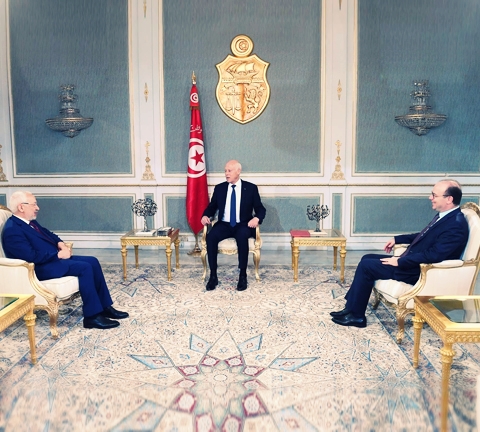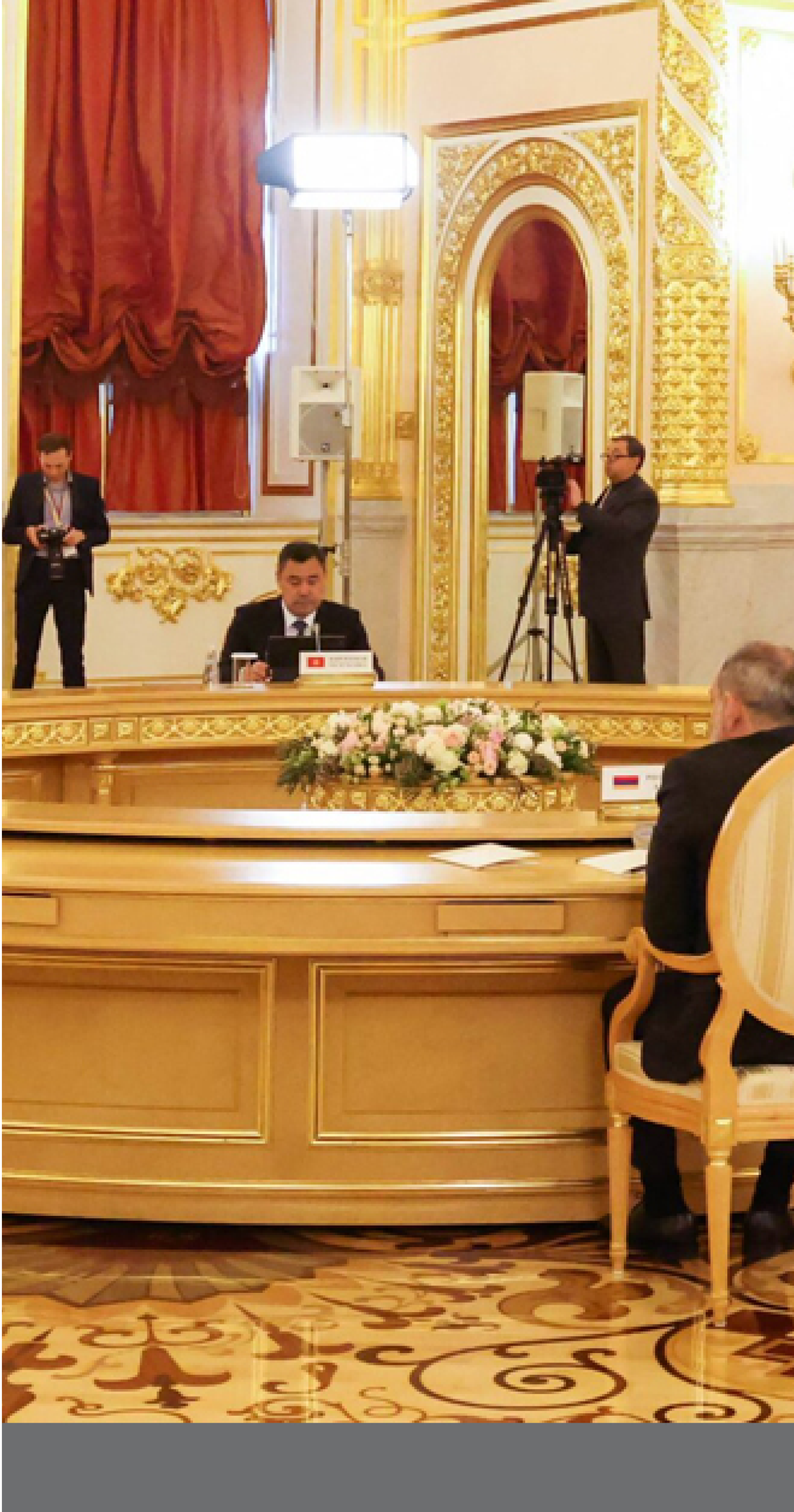Tunisia's political scene has reached a new turning point with Prime Minister Elyes Fakhfakh resigning on charges of corruption in mid-July 2020, less than five months after the government formation, thus reflecting the deep rift between the poles of Tunisia's political elite, mainly among parliamentary blocs, the majority of which participated in the collapsing government coalition.
Some observers attribute the recent political crisis to the parliamentary fracture, as none of the parties or coalitions that entered parliament after the October 2019 elections has managed or even came close to achieving a majority of 109 seats out of 217, consequently none of them is able to name a prime minister. This was the case, for example, with Habib Jemli, Ennahda candidate, who failed to form a government after two months of difficult consultations between parliamentary blocs early last year.
This point is of high importance, yet, it does not give a comprehensive picture of the situation. The political crisis cannot be described without referring to the political actors’ behavior interacting with the executive branch. Ennahda, for example, participated in the Fakhfakh government without regard to its ally, the Heart of Tunisia, the second power in parliament, only to join the Democratic Bloc close to the president, Kais Saied, which is made up of the Democratic Current and the People's Movement. However, what happened next is that Ennahda sought for the Heart of Tunisia to join the government coalition, which some interpreted as putting pressure on Fakhfakh in order to increase Ennahda’s share of ministerial positions.
The purpose behind this example is to say that the state of fragmentation in parliament has reached the executive branch in the form of a fragile and inconsistent coalition, and therefore unable to make a decision and impose a form of balance with parliament, which eventually led to the collapse of the government in parallel with the suspicions of corruption against Fakhfakh. For he was charged with conflict of interest by the National Anti-Corruption Commission, as he had contributions to five commercial companies that had dealt with the government, which is contrary to Tunisia’s Constitution, which prohibits the president and members of the government from participating in any business activity while in office.
Is accusing Fakhfakh of corruption what brought down the government? We can say here that this was the ultimate cause or the finishing touch that is added to a set of contradictions and differences within the executive body which would have come to a dead end sooner or later.
Al-Mashishi Government: Will the scenario repeat itself?
Hisham al-Mashishi's government won the parliament confidence in September 2020 to form a technocratic government far from partisan rivalries. However, the slogan raised by Al-Mashishi put him at odds with the President of the Republic over some of the names that were put forward in the ministerial composition, as Saied sought to impose a number of names that Ennahda and its allies in parliament saw as a hindrance to the work of the government. Nevertheless, Al-Mashishi passed the confidence test with 134 votes supported by Ennahda, the Heart of Tunisia Party, al-Karama Coalition and other small blocs.
It should be noted that the it was necessary for the latter government to recieve confidence, because failure to do so would allow the president to dissolve parliament and call new elections within a maximum of three months. Of course, this means another political vacuum that exacerbates polarization and prolongs deferred social and economic issues. This scenario may be appropriate for the presidency, contrary to the interests of the parties with the largest number of seats in parliament. Public confidence in parliamentary work in creating the executive branch will be affected. Thus, a highly fragmented parliament will be established, giving the Carthage Palace more room to draw political decisions and contribute more to the decision-making process.
The confidence was not for free, however, as the new prime minister responded to calls for the re-formation of ministerial portfolios, and a wide cabinet reshuffle was carried out on January 16, 2021, replacing all ministers favored for the presidency, on top of them was Tawfiq Sharfuddin, who served as Minister of the Interior and took over the Saied campaign, as well as the Minister of Justice, Mohamed Boussetta, under whom a prison order was issued to the head of the Heart of Tunisia party, Nabil Karoui, by the Court of First Instance in Tunis.
Al-Mashishi, who was tasked with forming the government, seems to have resorted to a political camp in parliament led by Ennahda in the face of the presidential institution, seeking not to single out political power in managing the country's public scene, which opponents interpret as a presidential trend to dominate the executive branch. But after all, Ennahda and its allies have reached their goal of forming an ostensibly independent government, but they are indirectly involved in it by putting forward a number of candidates - fully or partially compatible with it - to hold certain ministerial portfolios.
The failure to reach agreement among political parties in Tunisia is a continuation of the post-revolutionary crisis of the democratic transition that toppled the regime of the late President Zine El Abidine Ben Ali, of which the country is on its tenth anniversary. The troika model (2011-2014) included parties (Ennahda, Congress for the Republic, the Democratic Forum for Labor and Liberties) sharing the three powers (the presidency of parliament, the presidency of the Republic, the presidency of the government). However, the lack of harmony between the components of the troika led to the collapse of the experience in the light of the worsening economic crises, which did not prevail under former president Beji Caid Essebsi, although his term was marked by a relative independence at the political level, yet it witnessed similar situation, namely, the disagreement between the prime minister and the presidency of the republic, where the former Prime Minister under Essebsi, Youssef Al-Shahid, took refuge in Ennahda, which had a wider presence in parliament.
Contradictions within Ennahda and the return of protests
Despite the resignation of many Ennahda leaders in 2019, 2020 and even before that, the movement has maintained its organizational cohesion, but with two opposing currents within it. The first calls for internal reform, by refusing to centralize the decision in the hands of the president, Rachid Ghannouchi, who is entitled to - according to the party's rules of procedure - the dissolution of the Executive Council and the appointment of one third of the Shura Council, and the associated exclusions of certain members of the party from the decision-making channels. The second current is mastered by Ghannouchi and his supporters who see his remaining at the head of the movement as a form of consensus necessary to maintain its political presence in the Tunisian street.
This cohesion was tested a real test earlier this year when the elections were held for the executive council of the movement. The Shura Council approved a list of many names opposed to the mechanism of managing the Secretary-General of the Movement for Organizational Affairs and refusing to renew his mandate for the third time, which is fundamentally contrary to the movement's regulations. These names are engaged under a current called "Group of 100", which is a hundred figures within Ennahda calling for organizational reform and avoiding decision-making monopoly by Ghannouchi, who was supposed to leave the post of Secretary-General in May 2020 during the general conference of the movement, but it was postponed indefinitely due to the coronavirus outbreak.
The Shura Council, which elects the executive council of the movement, has removed 17 names from the list nominated by Ghannouchi for the council, indicating a real and growing trend capable of influencing leadership trends through organizational channels. However, Ghannouchi could modify the results of the executive council elections due to the lack of a legal deterrent to prevent him from doing so, but such a move would blow the internal contradiction in the movement into a major split.
The important point here is that the changes that the "Group of 100" can make to the political scene in Tunisia are, of course, limited, because there is no direction to depart from the general political line of the movement, even if the group dominates the leadership of the conference next year. If there is a split in the movement, it could have an impact on the parliamentary balances and therefore on the continuity of the current government.
The political crisis and the health crisis that have worsened with the outbreak of the Coronavirus have greatly increased the impact of the economic and social crises experienced by citizens, such as unemployment, poverty and lack of services. Therefore, it will be expected that people will protest whether peacefully or otherwise. This is what has been taking place since the middle of this month, when noisy demonstrations began in many Tunisian cities, including the capital, resulting in hundreds of arrests and calls for calm and avoiding illegal actions.
It was remarkable and suspicious that Ennahda Shura Council chairman, Abdel Karim Al Harouni, invited the movement's youth to go to the streets to protect public and private property from acts of vandalism that have accompanied the recent night demonstrations. This statement, which was followed by similar statements by other leaders of Ennahda, was understood by other political currents and parties inside and outside parliament as an invitation to an internal popular clash, considering that the task of preserving the economic interests of citizens is entrusted only to the security agencies not to parties.
Popular pressure can change the equation, but this will be a matter of formal and superstructural measures, such as calling for early elections and the formation of an emergency government, because of the lack of clear leadership for this movement, and this same problem that confronted the youth of the revolution 10 years ago. This does not mean that the country is far from chaos, however, especially if the momentum of popular protests increases, the matter which is likely as the prospect for political consensus among the ruling elite continues to be blocked.
Keep in touch
In-depth analyses delivered weekly.

Related Analyses:








